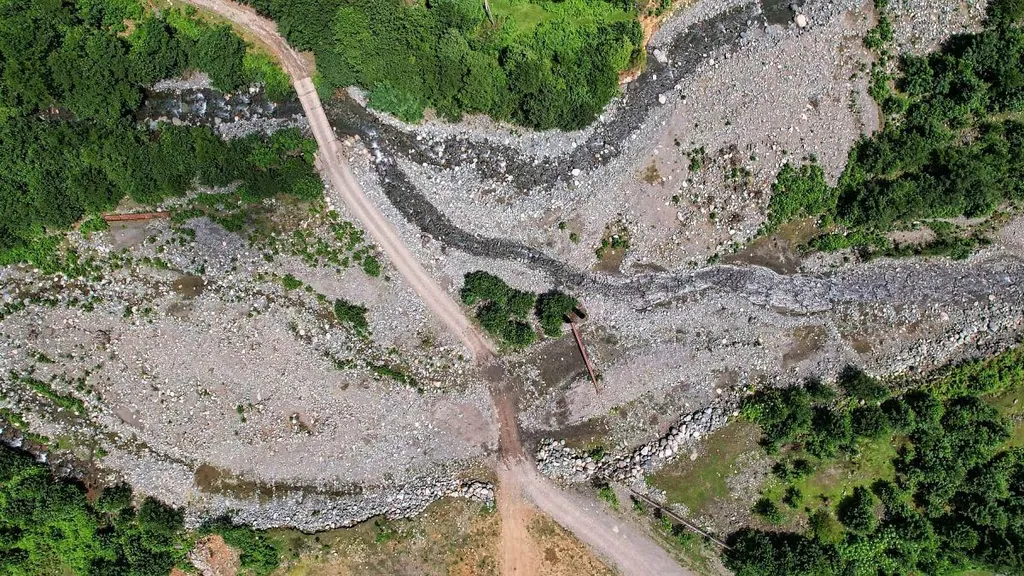In the ever-evolving landscape of agricultural technology, a recent scientometric study published in the *Journal of the Geological Survey of Brazil* has shed light on the burgeoning role of artificial intelligence (AI) in landslide prediction, offering insights that could significantly impact the agriculture sector. The study, led by Mallikarjun Kappi of the Government First Grade College Hospet, analyzed 1,834 publications from 2009 to 2023, revealing a rapid growth in research output with an annual citation rate of 26.66% and an average of 45.80 citations per paper.
The findings highlight the multidisciplinary potential of AI in landslide prediction, a critical area for agricultural regions prone to such natural disasters. “The study underscores the importance of international collaboration and the need for explainable AI to enhance model transparency,” Kappi noted. This transparency is crucial for farmers and agricultural businesses, as it allows for more reliable and understandable predictions, ultimately aiding in better decision-making and risk management.
The research also revealed that while the number of publications has increased, the citation impact has not kept pace. This discrepancy suggests that while there is a growing interest in the field, there is also a need for more impactful and high-quality research. The top 25 authors contributed to 50.87% of the total output, indicating a concentration of expertise within a small group. International collaborations, particularly between China and Vietnam, have been instrumental in driving progress, with 42.42% of the papers resulting from such partnerships.
Funded research has played a significant role, with 1,307 papers generating 59,863 citations. The study found that while geology dominated the discipline, agriculture achieved the highest citation impact. This is a promising sign for the agricultural sector, as it indicates that research in this area is not only relevant but also highly valued.
Q1 journals such as *Catena* and *Landslides* outperformed Q2 venues like *Remote Sensing* in terms of citations, suggesting that high-quality research is more likely to be published in top-tier journals. Among the 227 highly cited papers, the average citation count was 215.1, highlighting the significant impact of these studies.
The core themes of the research included machine learning, landslide susceptibility, and deep learning. These areas are particularly relevant to the agriculture sector, as they can help predict and mitigate the risks associated with landslides, thereby protecting crops, livestock, and agricultural infrastructure.
The study’s findings have implications for future developments in the field. Enhanced international collaboration, explainable AI, and strategies to mitigate citation biases are essential for maximizing research impact. As Kappi pointed out, “The multidisciplinary nature of AI in landslide prediction offers immense potential for the agriculture sector, but it also requires a concerted effort to ensure that the research is both impactful and accessible.”
In conclusion, this scientometric study provides a comprehensive overview of the current state of AI in landslide prediction, highlighting the need for collaboration, transparency, and high-quality research. For the agriculture sector, these insights could pave the way for more effective risk management and sustainable practices, ultimately contributing to food security and economic stability.

